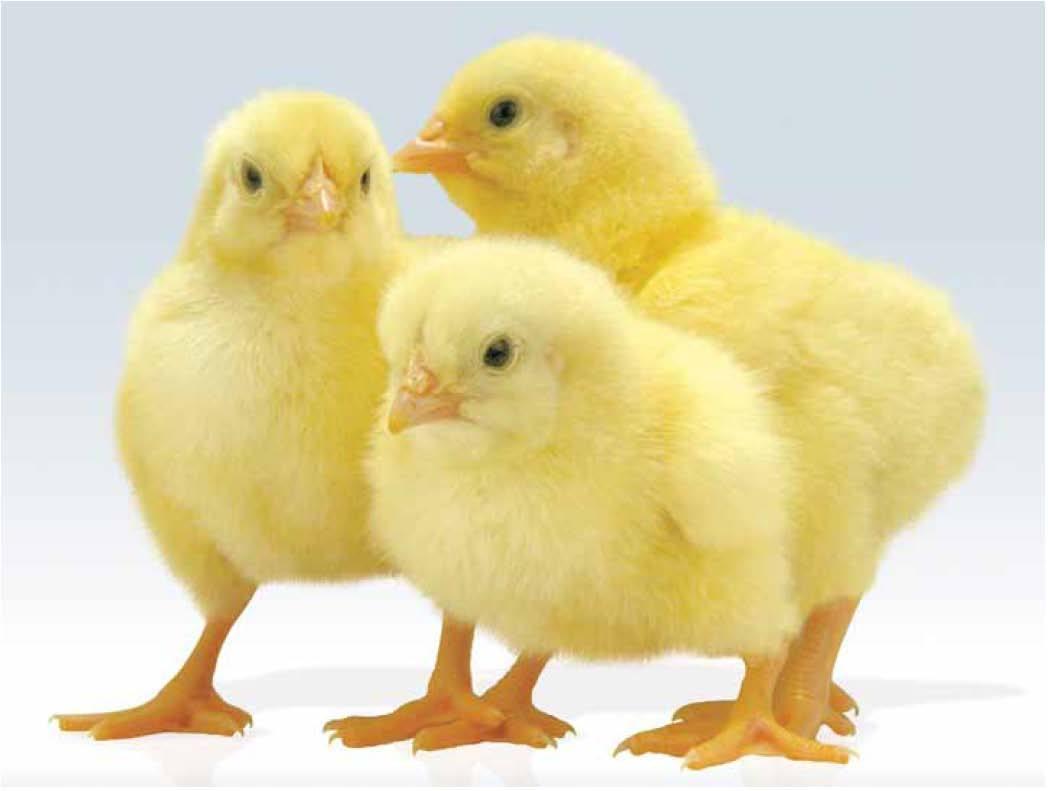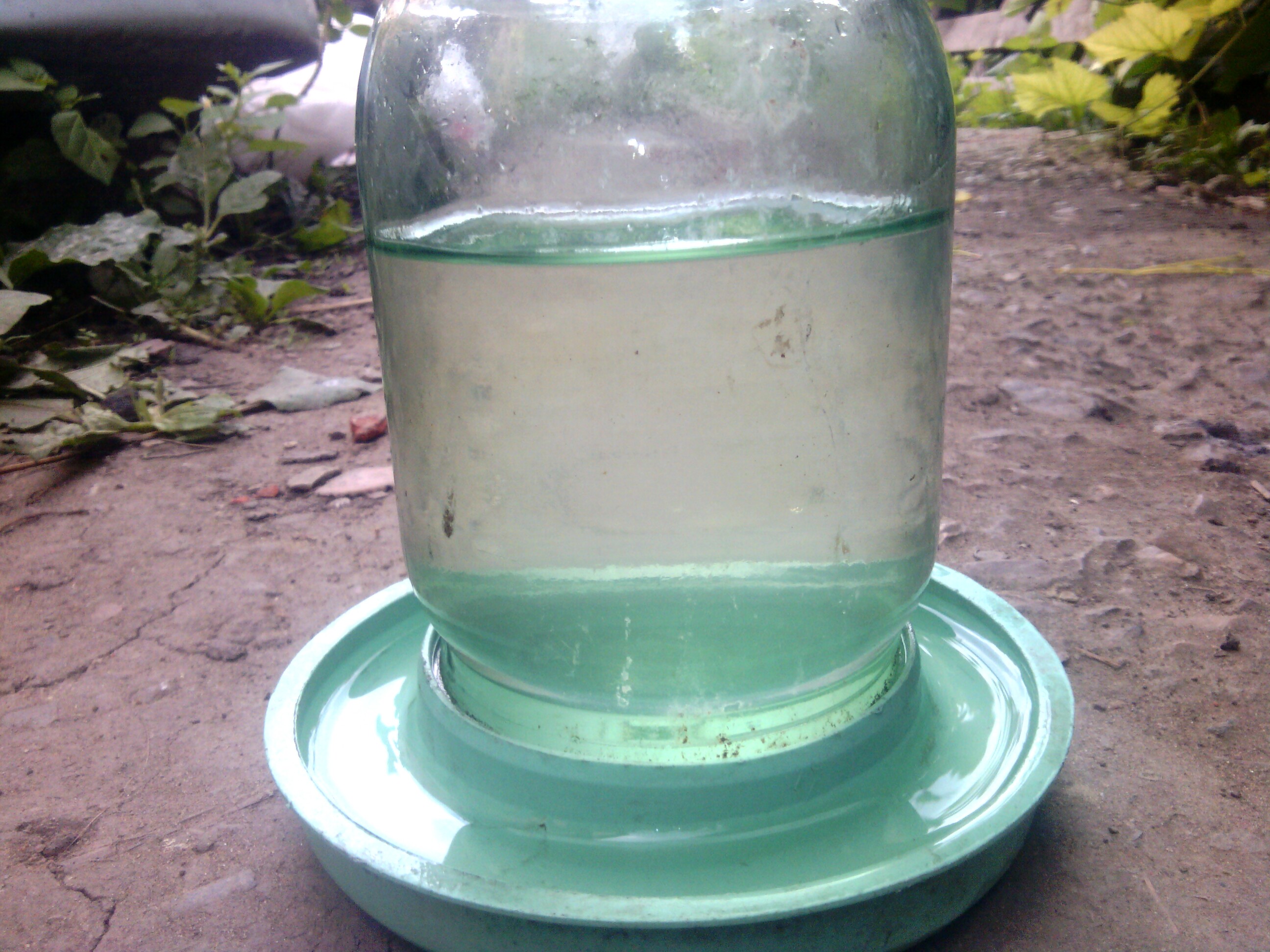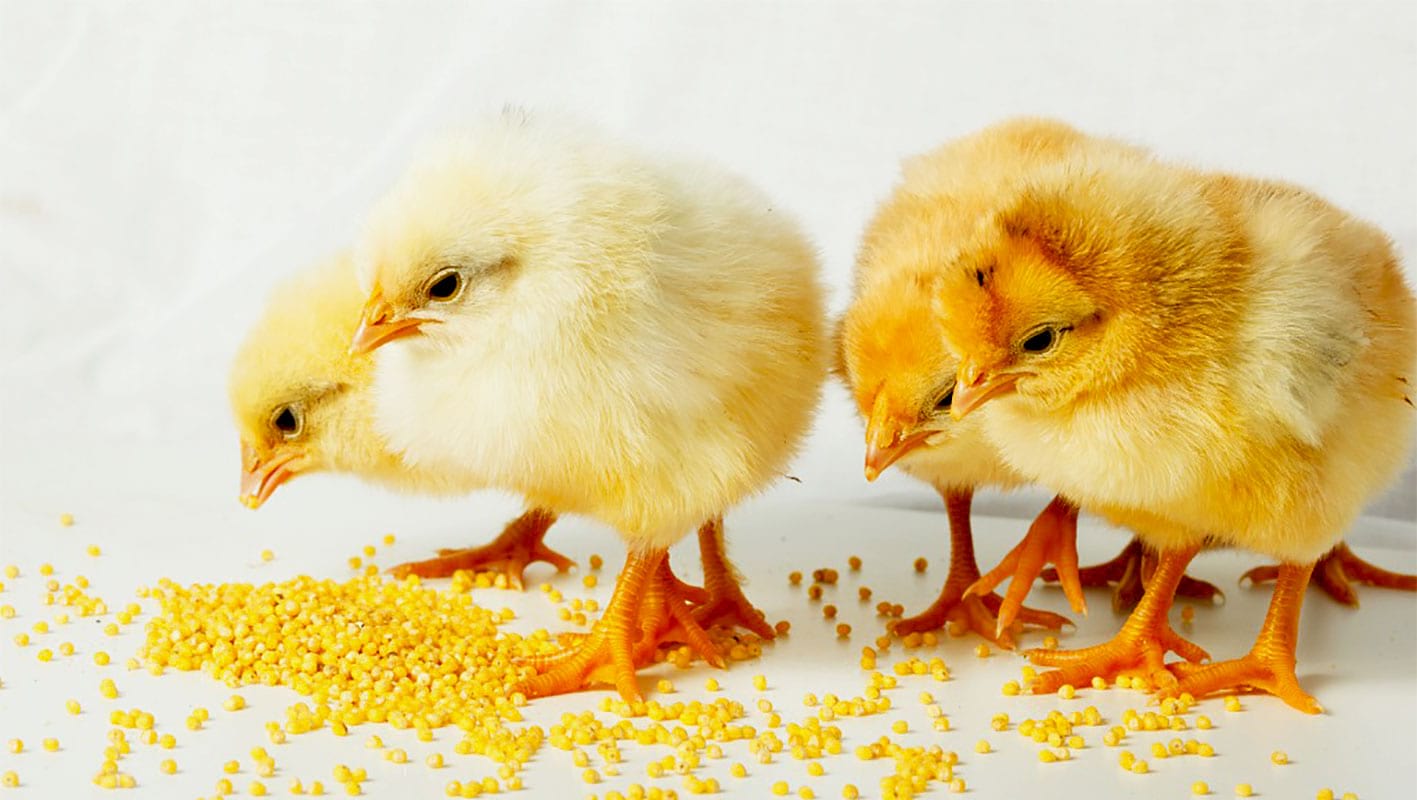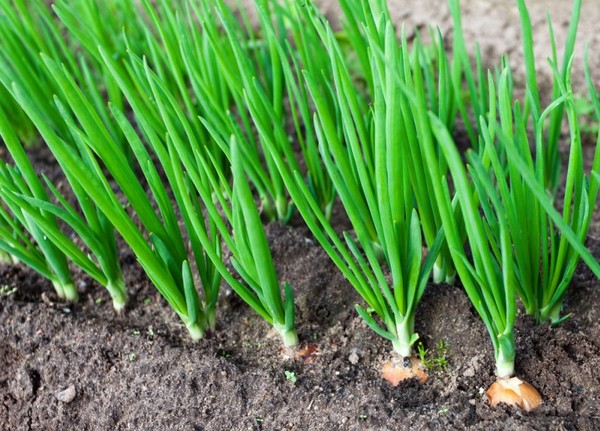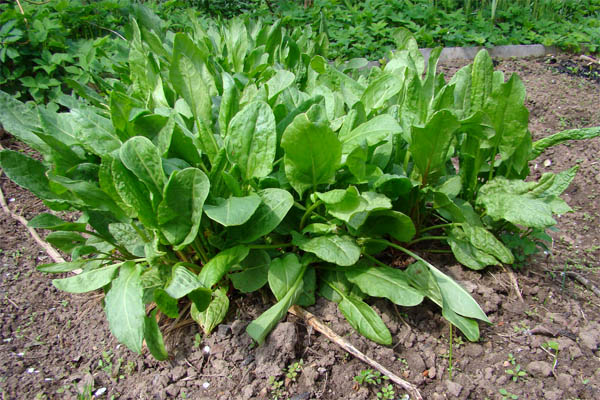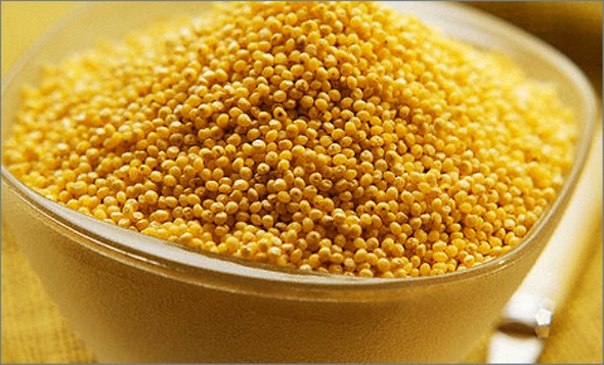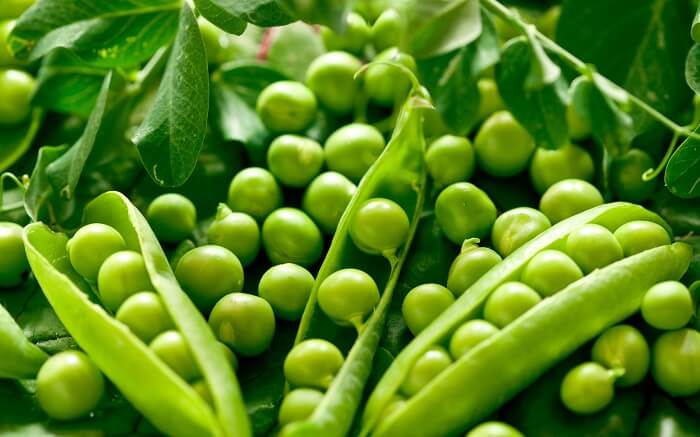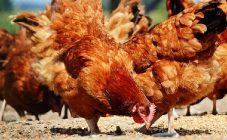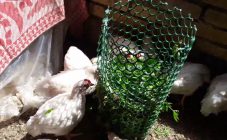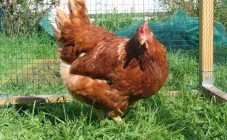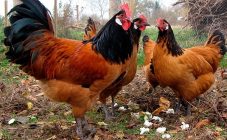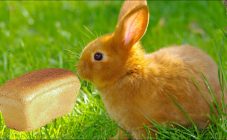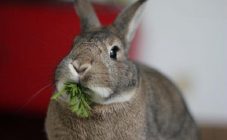Content:
When a broiler chick first hatches, a negligible supply of nutrients and elements remains in its yolk sac. This allows him to exist until he can peck food on his own.
General rules for feeding chickens
Experts point out that you can feed chickens with standard feed for adults, but beforehand, such products must be carefully chopped. There are no special requirements for the choice of feed, it is only important that they are of high quality and fresh.
At what age can chickens be given whole grains and other feed additives:
- From 1 to 4 days old, small chickens can be fed an easily digestible food such as sifted cornmeal. Babies will be attracted by the bright yellow color and scent.
- If there are substandard eggs from the incubator from healthy normal birds, they can be boiled, finely chopped and given to chicks. The older the chicks become, the more significantly the quality of the feed can be changed by adding different mixed feed (finely crushed).
- When the chicks reach 3-4 weeks of age, they can already be released to the walking area, into fresh air. Sand and feed can be scattered on the walking areas, giving more greenery to help birds get used to plant foods.
- From the moment of the onset of 30-35 days, chickens already need a full-fledged feed mixture from coarse grains.
- After 6 weeks of age, chicks can be fed whole grains without grinding during the evening feeding period.
- In the morning, leftover grain flour with wet mixes is best.
- With the onset of 6-7 weeks of life of chicks, they can be safely transferred to roughage, but with different additives. At this age, whole grains are the most important part of the nutritional diet of adult birds.
When can chickens be fed raw water?
Water is essential for good growth and development of chicks and should be given in sufficient quantities. Raw water is best given after 2-3 months of chicks life, when the body is fully formed and adapted. Prior to this, the water must be boiled and cooled before serving.
You should carefully consider the temperature regime of the water:
- In the summer period - 16-18 degrees.
- In winter, no more than 22 degrees.
Newly born chicks are given water no more than 25 degrees in drinking bowls that prevent contamination. The special design protects external pollution and from the introduction of dirt by the bird itself.
The water must be absolutely clean, otherwise there is a risk of infection of the bird. Wild birds must not be allowed to drink at chickens. It is necessary to change the water depending on pollution and weather conditions, but at least 2-3 times a day. Drinking bowls must be cleaned and disinfected 4 times a month.
How to properly steam millet for chickens
Many experienced breeders recommend steaming millet for the smallest chicks.To do this, pour the prepared cereal with boiling water and leave to infuse until the grains swell. This process takes about a day.
When can grain be fed to chickens and how to prepare it correctly? The mass should turn out to be liquid, so as not to stick the chickens' beaks, ready-made millet can be combined with curd mass, herbs or corn flour.
Features of the right diet
Depending on chick age and condition, the concentration of additives may vary.
Green onions
Fresh (green) onions play an important role for the immature organism of chickens. It acts as a prophylaxis for intestinal diseases and indigestion, kills bacteria, helminths and all sorts of intestinal bacteria. It is best to introduce this complementary food from the 5-day age of the birds. You can grow it on the windowsill at home, on your own plot, or buy it in a store.
To add green onions, chop them finely. Basically, such an additive is introduced in an amount of no more than 7 g per chicken per day. An analogue of simple green onions can be onions in the same dosage per day. But, in this case, the head of onion must be thoroughly grinded or passed through a meat grinder, blender.
A decoction of onion peels is very effective for normalizing digestion and preventing intestinal infections. Herbs such as stinging nettle are well suited to enrich the birds with vitamins.
Sorrel
Sorrel is a tasty and healthy herb for birds. It contains many vitamins, trace elements, the herb is enriched with carbohydrates, fiber and proteins. The advantage of this plant is its early germination, already at the beginning of spring you can saturate the chicks with vitamins.
You can start adding sorrel to the feed from 3 days of age. The herb must be thoroughly chopped, mixed with the rest of the ingredients, for example, egg or cottage cheese.
Millet
At what age can chickens be given millet, wheat? Millet is considered the most preferable for chickens and adults, which is suitable for a daily diet already at one day of age.
To diversify their diet, many breeders combine millet with semolina or corn grits. Millet groats contain a large amount of protein, which is so necessary for a young growing body of chickens.
Peas
Legumes, including peas, have a large amount of protein and are high-protein feeds. They are essential for normal growth and development of chicks. Peas also contain an important amino acid - lysine.
You can add raw or boiled peas to the daily diet from the 10-day age of birds. You need to enter in a small amount so that the pungent smell does not frighten the chickens. Initially, the proportion of peas is approximately 10% of the total feed weight.
Celandine
The celandine plant belongs to poisonous crops, although it has useful medicinal properties. It is contraindicated for small chicks. Care must be taken to ensure that the celandine does not end up on the table with the chicks and does not grow in the paddock. Otherwise, there is a high risk of developing digestive disorders and death of chicks. You should also be careful with buttercup, and any spoiled, rotten herbs.
Yeast
How and when to give yeast to chickens? On the 9-10th day of life of chicks, yeast can be added to the main diet. They have a beneficial effect on the digestive system, promote rapid weight gain and muscle mass. Yeast should be given at the rate of 1 tsp. for 10 birds, the mass can be added to mixed mixtures, millet, cereals. Yeast bread also has a beneficial effect on the growth and development of chickens, which is why it is often added to the mash.
Cottage cheese
The fermented milk product helps chickens to grow and develop properly.Fresh cottage cheese enriches the body with calcium, vitamin "D", strengthens bones and cartilage. Curd normalizes the acid-base balance of the stomach. This ensures better digestibility of products, reduces the likelihood of developing diseases of the digestive tract.
How and when to give cottage cheese to chickens? Cottage cheese is very useful for young chicks, and it can be introduced into complementary foods from the 2nd day of the birds' life. In addition to cottage cheese, you can include milk, whey, yogurt in the diet of small chickens. Mushrooms are often made on their basis, milk or yogurt is poured into drinkers instead of water.
Cabbage
Only starting from 5-6 days of life of birds can fresh, chopped cabbage leaves be added to their feed. This root vegetable has a large amount of potassium, it is enough to give 1 tsp per day. for 10 chickens. Cabbage must be chopped very finely, added to feed or millet, not given separately.
Fish fat
Already from the 5th day of life of small individuals, you can give fish oil, the recommended rate per day is no more than 0.2 ml. Egg shells can also be used to provide the required amount of calcium. It is ground into powder and added to the feed. You cannot give the fish itself.
Sand
Most experienced breeders agree that sand should not be included in the diet. This is due to the fact that small grains of sand will clog the goiter and lead to obstruction.
Gravel
It is recommended to choose fine gravel, which will cleanse the esophagus of young animals, will stimulate better bowel function, and promote grinding of solid food.
Shell
For young chicks, it is very important to add mineral supplements to the diet. You will also need sulfur for the chickens. The shell solves the problem. It is necessary to add this element only in crushed form, from the moment when the chickens are 5-6 days old. The crushed shell must be served in a separate bowl.
Tips and tricks from experienced poultry farmers
To grow strong young growth, you should follow the advice of experts:
- For a rational distribution of feed, it should be chosen based on age.
- It is imperative to choose convenient feeders that match the livestock.
- Loose feed and whole grains should be used in a ratio of 1/3 to 1/2, respectively.
- The dimensions of the feeders must correspond to the number of birds, the height of the side should not be lower than the back of the bird.
- The feeder should be 1/3 full of millet for chickens so that loose and wet mixtures do not trample too much.
- If one of their chicks begins to eat poorly, loses their appetite, it should be deposited and gradually fed with warm milk from a pipette.
- To prevent the development of diseases, chicks should be given a weak solution of potassium permanganate, at least 2-3 times a week.
- For disinfection of feeders and drinkers, it is recommended to use hot soapy water or 5% formalin solution.
During walking and feeding, individuals receive a lot of useful nutrients, vitamins and minerals with grass, additives.
Once you've learned when, how much, and what kind of feed your chick should get, it's easy to create the right wheat-based diet to keep your birds healthy as they grow. By observing the rules of feeding, the farmer will be able to breed chickens for meat or eggs, building a thriving business on this.
